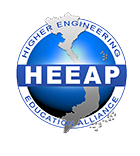An electrical engineering professor has found student success through introducing HEEAP teaching methods in his classroom at the the University of Danang - University of Science and Technology (UD-DUT) in Vietnam.
Dr. Nguyen Hoang Mai, who also heads the Automation Department at UD-DUT, attended the HEEAP 2012 University Program in August where he learned how to redesign his course syllabus to accommodate active learning teaching methods, like teamwork, to enable critical thinking and interpersonal communicative skills among students and faculty. Upon returning to Vietnam, he immediately implemented what new teaching methods he learned to his classroom.
HEEAP aims to bring together government, academia, and industry to modernize Vietnamese public higher education in engineering.
Dr. Mai first introduced teamwork as a HEEAP technique to his classroom, where each group, comprised of five to seven students, had to work together to solve chapter problems. Under his guidance, the students independently researched from books and the Internet to craft physical models that they then presented in class.
“My courses are special lectures of electrical engineering, so professional knowledge [is] important for students,” he said.
Besides theory-based knowledge, Dr. Mai supplements his class lectures by lending his own knowledge of experience as a professional engineer. After the first part of a lecture, Dr. Mai said he engages his students in participative dialogue through evaluative questions. He believes his students enjoy the interactive classroom environment because they are comfortable and retain
“good knowledge for their futures.”
Previously, Dr. Mai taught in the classic teaching method commonly known as “passive learning,” where the professor dictates knowledge directly from the syllabus in lecture format to the students who then read, write and take exams on a pass-fail basis. In effect, the student’s knowledge depends on the knowledge of faculty, where there is little opportunity to develop skills in an interactive environment, Dr. Mai said.
Dr. Mai also noted he has connected with students on a personal level since implementing active learning techniques.
“My students ask me questions about specialized professional life more and more,” he said.
After the fall semester is over, Dr. Mai plans to train more DUT faculty in HEEAP teaching methods, saying, “I see that HEEAP teaching has many changes for Vietnam's education.”

